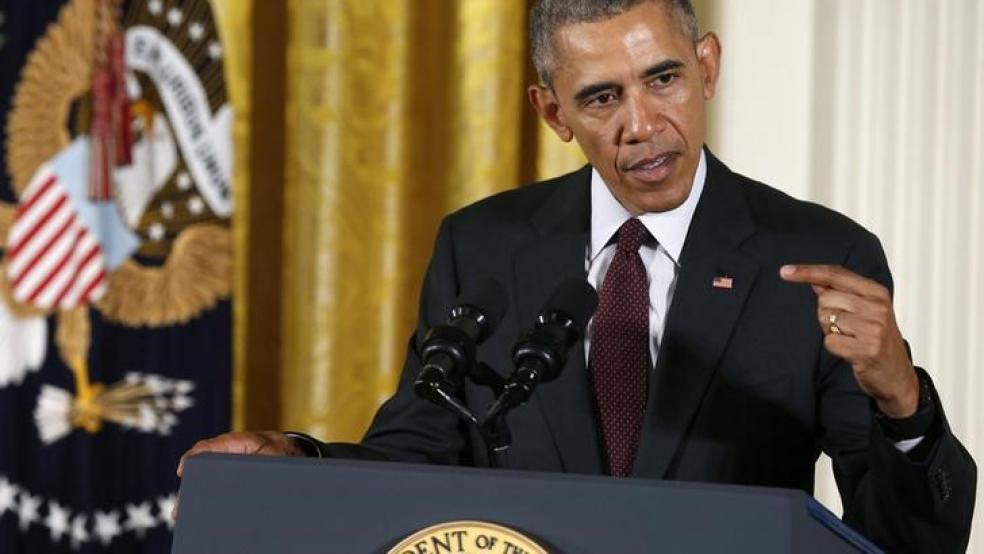President Obama’s on Wednesday vetoed a congressional resolution aimed at blocking implementation of a new consumer-friendly Labor Department conflict of interest rule designed to prevent retirement investment advisers from shirking their fiduciary responsibilities when selling 401 (k) plans, IRAs and other financial instruments.
The new Labor Department guidelines – which were finalized in April -- mark an important breakthrough in regulating financial advisers who may prey on older Americans trying to make sense of their holdings and strategies for maximizing their life savings. For years, brokers eager to maximize their fees, even when it wasn’t in their customers’ best interest, got around the requirement of being a fiduciary by offering “only education” while steering clear of providing “advice.”
Related: Consumer Alert! 1 in 5 Older Americans Have Been Swindled
That may sound a little like splitting hairs, but adherence to this long-standing “suitability” standard gave brokers considerable leeway to sell their financial products without sweating the consequences of hitting up their clients with excessive fees or – worse – locking them into a long-term investment that may not be in their best interest.
“The expanded definition of advice leaves very little room for brokers to operate under a ‘suitability’ standard as they once did,” Brian Menickella, co-founder and managing partner of the Boston-based Beacon Group of Companies, wrote recently in Forbes. “It now requires all advisors to act as fiduciaries when making recommendations and/or giving advice on 401 (k) plans or IRAs – including recommendations for a rollover or a distribution.”
He said the old, oft-abused standard would now be gone for the sale of retirement accounts, but not individual retail account. The new rule will eliminate what he described as a conflicted compensation model “that was ripe for abuse.”
Because the new definition of “advice” also includes recommendations about distributions to or from Individual Retirement Accounts or 401(k) plan, a fiduciary status is “triggered” whenever an advisor recommends a rollover or distribution for those plans, Menickella said.
Related: 10 Tips to Protect Yourself from Scammers This Tax Season
The new rule was staunchly opposed by the financial industry and its allies on Capitol Hill. However, Obama defended the measure in his veto statement. He said it reflects “extensive feedback” from other members of Congress and has been “streamlined to reduce the cost of compliance and ensure consumers continued access to competent advice.”
“Because this [congressional] resolution seeks to block the progress represented by this rule and deny retirement savers investment advice in their best interest, I cannot support it,” Obama said in his veto message to the House of Representatives. “I am therefore vetoing this resolution.”
The new rule mandates that all advisors act as fiduciaries and be responsible for not only advising clients but also managing their assets. Asset managers, bankers, accountants and others can all be considered fiduciaries when entrusted in good faith with the responsibility of managing others’ assets.
Until now, only Registered Investment Advisors (RIAs) were deemed fiduciaries in advising people on financial decisions while brokers were exempt, according to Menickella. But the new Labor Department rule “aims to bridge the gap between them, and create uniformity.”
Related: How to Simplify Your Retirement Accounts — and Make More
The House adopted the resolution seeking to block the new regulations in April, on a 234-183 GOP-Democratic party line vote, while the Senate approved the measure 56 to 41 last month with the support of three Democrats, according to Morning Consult. However, since neither vote was enough to override a presidential veto, the new rule is likely to stand – at least through the remainder of Obama’s second term.
Rep. Phil Roe of Tennessee, who introduced the resolution, said in a statement Wednesday that he and other Republicans would continue their fight on the retirement security issue, arguing that the Labor Department approach would actually hurt investors.
“This veto threatens the retirement security of millions of working families,” said Roe, the chair of the Health, Employment, Labor, and Pensions Subcommittee. “We’ll continue to do everything in our power to protect access to affordable retirement advice for every American.”
In a separate statement, Education and the Workforce Committee Chairman John Kline (R-Minn.) said the fiduciary rule fight is “far from over.”
“Congress will continue to do what’s necessary to stop this harmful rule and help low- and middle-income families retire with the dignity and peace of mind they deserve,” Kline said.





